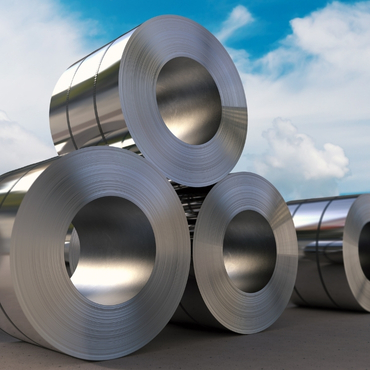Beşevler Küçük Sanayi Sitesi 12.Sk. 15. Blok No: 53-54 Nilüfer / BURSA



Beşevler Küçük Sanayi Sitesi 12.Sk. 15. Blok No: 53-54 Nilüfer / BURSA

31 Mayıs 2024
The Turkish steel pipe sector is facing challenges in important export markets as well as difficulties in raw material procurement, compounded by increased costs due to customs duties on imported products. Despite these challenges, the sector maintains its position as the largest in Europe and the fifth largest in the world in terms of steel pipe production. With an annual production of approximately 4.25 million tons, the steel pipe sector exports around 50% of its production. The sector, aiming for export-oriented growth, achieved a 2.71% increase in total exports in quantity during the January-September 2014 period, reaching 1.435 million tons and $1.205 billion in value.
According to the data from the Steel Pipe Manufacturers Association (ÇEBİD), during the period of January-September 2014, the sector's exports reached 1.435 million tons and $1.205 billion in value, showing an increase of 2.71% in quantity compared to the same period of the previous year. Despite a 25.62% decrease in the nine-month period, Iraq maintained its leadership with exports totaling $194.769 million, while the United States saw a 10.25% increase reaching $182.783 million, and the United Kingdom experienced a 64.90% increase with steel pipe exports valued at $138.049 million. Looking at the monthly export figures of the steel pipe sector, it is observed that exports experienced a significant increase in September. Turkey's steel pipe exports in September reached 183,160 tons, a 10.77% increase compared to the same month of the previous year, with exports valued at $146 million. Regarding the situation and export of the Turkish steel pipe sector, Mehmet Zeren, the Secretary-General of the Steel Pipe Manufacturers Association, stated, "As of the end of September, it is observed that our exports have approached 1.5 million tons. However, the problems we face in raw material procurement sometimes cause disruptions in production and, consequently, in exports. It is crucial for our sector to ensure timely and cost-effective raw material procurement to maintain the success achieved in production and exports." Drawing attention to the low taxes on raw material imports in many sectors and the high taxes on finished product imports, Mehmet Zeren pointed out the opposite practice in the steel pipe sector. Despite the Customs Union and the Common Customs Tariff between Turkey and the European Union, while zero customs duties are applied to flat steel imports in EU countries, Turkey imposes taxes ranging from 9-10%, creating a significant contradiction. Mehmet Zeren emphasized the importance of regulating raw material procurement based on world market prices to maintain the competitiveness of the sector. Mehmet Zeren also noted that Turkey's annual production of flat steel cannot meet the demand. Despite an average annual production of 10 million tons of flat steel in Turkey, consumption reaches 14 million tons. Considering that approximately 2 million tons of production are exported, it is estimated that about 6 million tons of imports are needed to meet the demand. The inadequacy of domestic production in the domestic market causes delays in meeting orders for the leading domestic flat steel producer and raw material supplier, Erdemir, which can only fulfill orders 5-6 months later. Furthermore, Mehmet Zeren mentioned the decrease in production at flat steel factories that use scrap for production due to the more advantageous prices of ore compared to scrap recently, which is expected to exacerbate the difficulties in raw material procurement in the domestic market.
Regarding the allegation that plates imported under the Inward Processing Regime are sold in the domestic market and plates purchased from the domestic market are used in export products, Mehmet Zeren stated that products made from domestic market plates do not provide any advantage for exports, but rather create a disadvantage. For example, when exporting OCTG pipes to the United States using plates of Erdemir origin, the US Department of Commerce initiated a countervailing duty investigation claiming that Erdemir is a state-controlled company. Additionally, allegations have arisen regarding the poor quality of flat steel products imported from Ukraine and Russia. Flat steel producers imported approximately 2.3 million tons of slabs last year, half of which were imported from Russia and Ukraine, and products made from these slabs were introduced to the market. The fact that the European Union sourced approximately half of the 7.5 million tons of flat steel it imported from non-EU countries in 2013 from Russia and Ukraine also disproves these allegations.